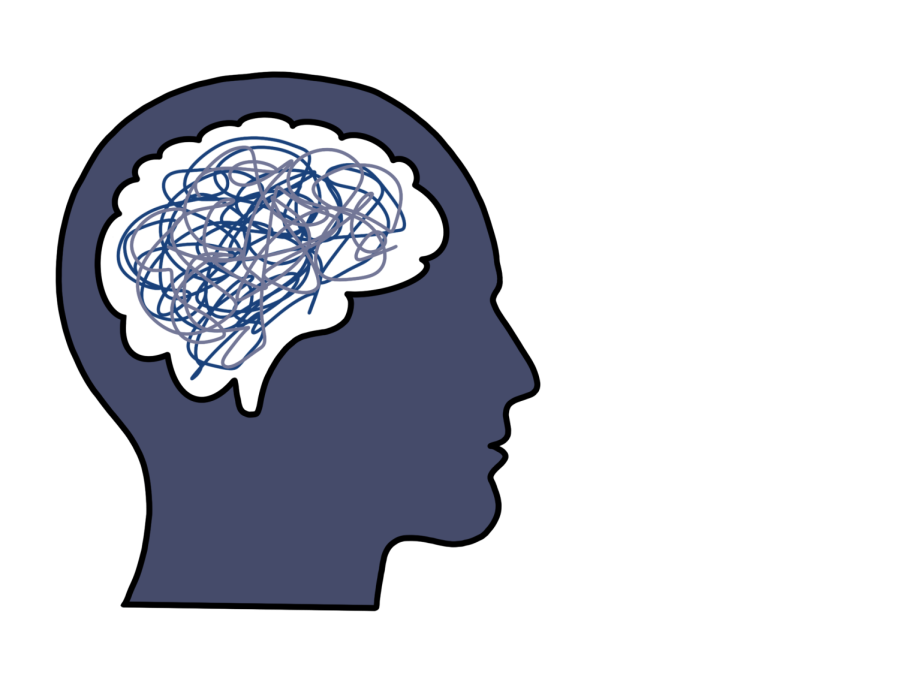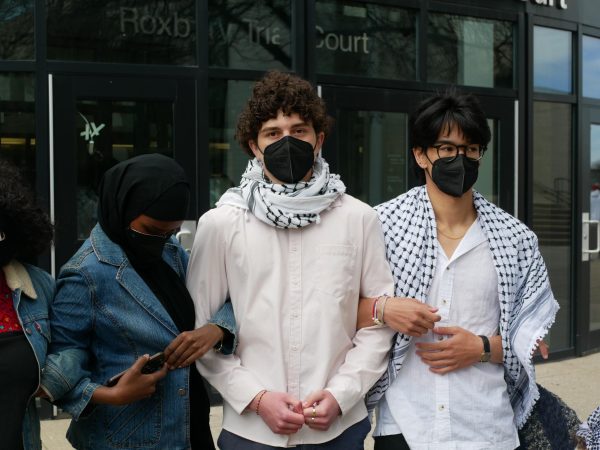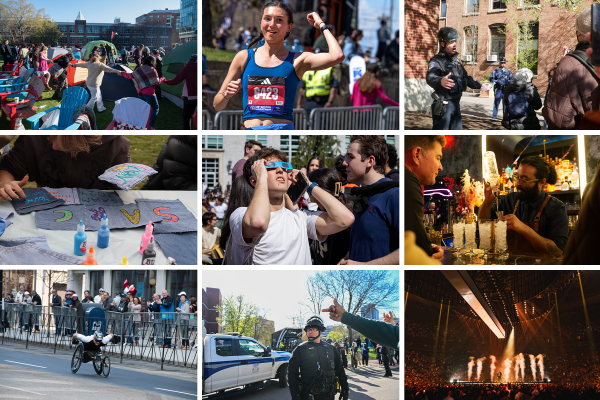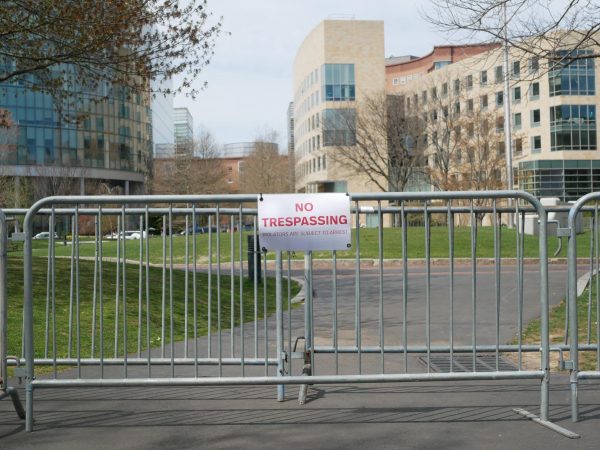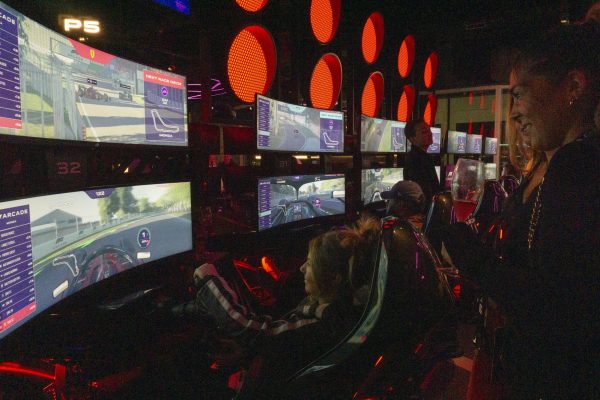JED partnership seeks to upgrade on-campus mental health support
Northeastern announced a collaboration with the mental health advocacy group JED in an Oct. 31 email. The four-year partnership will bring advisors on campus to help improve Northeastern’s mental health resources.
November 16, 2022
Northeastern announced in an email Oct. 31 that it will begin the process of becoming a JED campus in an effort to improve on-campus mental health support for students.
JED is a non-profit foundation committed to destigmatizing the conversation around mental health and preventing suicide on college campuses, with almost 400 universities currently registered in the network. In the four-year plan, colleges gather information on what support students need and then formulate a strategy in order to address lacking areas, with the aid of JED advisors.
In the Oct. 31 email, Senior Vice Provost Deb Franko and Director of Violence Prevention Initiatives Megan O’Hara wrote that Northeastern will be organizing an advisory team of faculty, staff and students to create the strategic plan. O’Hara said the task force was selected based on a list of recommended roles provided by JED, which was then translated into faculty and staff across the university. Some students are also to be added later, O’Hara wrote.
The first action the task force will take is filling out a baseline assessment, O’Hara said, which will look into the services currently available at Northeastern, as well as advertising the Healthy Minds Study to students. In the spring, the task force will guide JED advisors throughout Northeastern to assess the university, and the advisors will construct a strategic plan for the university.
Federica Ciummo, the sector lead for health and wellness on Student Government Association, or SGA, student services committee and a third-year health sciences and psychology combined major, said she first heard about the partnership Nov. 4. Christine Civiletto, the assistant vice chancellor of wellness in University Health and Counseling Services, or UHCS, and Dan Solworth, the vice chancellor of wellness and student success, told Ciummo while in a meeting.
Ciummo attributed the move to Civiletto, who Ciummo said has worked to integrate student voices into discussions surrounding on-campus services from her time as interim director of UHCS to her transition to assistant vice chancellor. Civiletto is also a member of the task force.
“I definitely feel that in the last few years that I’ve been here, I’ve seen big improvements in the way that UHCS operates in the sense that it’s much more student-focused, like it’s actually reflecting the needs that I remember voicing even in my freshman year,” Ciummo said. “I honestly think a big part of that has to do with [Civiletto] … and I think that having her in an even higher position just means better things to come.”
The JED task force said they intend to continue listening to student feedback throughout the four-year partnership.
“One thing that’s really exciting about this, and that’s important about the partnership, is that JED talks about how the success of this project means that we need partners from across the university to be involved,” O’Hara said in an interview with The News. “Students will be invited to let us know what they think and their thoughts and comments and wishes will be committed to decision making going forward.”
Charlie Zhang, the vice president for SGA’s student services committee and a third-year sociology and international business combined major, said during his time at Northeastern he has seen an increasing focus on student input, including in regards to mental health services.
“Over the last few years that I’ve been here, I think the promotion of [what resources are available] is a lot more on the forefront than it was before,” Zhang said. “And part of that is to do with the increased emphasis on mental health on campus, which I really really think is so important because people need to know that they’re being heard, that what they’re feeling is valid and so many other students are in a similar position to them.”
Alex Norce, the president of mental health advocacy group Active Minds and a third-year behavioral neuroscience major, said Active Minds played a key role in meeting with Northeastern officials last school year to push university accreditation through organizations like JED. Originally, in December 2021, the student organization pushed for an accreditation through International Accreditation of Counseling Services, or IACS.
Norce said Active Minds met with Civiletto, Solworth and Kellianne Carfi, the associate director of the Office of Prevention and Education, or OPEN. During these meetings, members of Active Minds set forth a list of action items for the university in order to improve responses surrounding mental health on-campus.
Norce said she thought the school officials gave non-definitive answers on how to implement the recommended changes, and she said she was unsure if higher-level administrators ever learned about Active Minds’ proposal.
“The big thing [about] talking to administration is sometimes it’s circular – not a lot gets done. … It’s just empty promises,” Norce said. “So I don’t know when we have meetings with people who are not the top of the administration, if our ideas are even getting fed through to the higher-ups at Northeastern.”
In April 2022, Norce said Civiletto and Solworth revealed that they were looking into an accreditation with JED, according to Active Mind’s minutes for the meeting. Negotiations with university faculty stopped soon after that, Norce said, as Active Minds turned to sending out its own survey to students in order to reinforce the club’s stance on university mental health policy.
Norce said it was disheartening that Active Minds, or any other student group, was not recognized as part of the push behind the move to accreditation.
“We got the email and it was honestly really surprising for all of us, and I don’t know if the people who made this decision knew that any student groups were involved,” Norce said. “It’s honestly just disappointing that they didn’t mention any of the student groups who are pushing for speech on campus, or even talk to us about it … because [Northeastern is] trying to be a voice of the students.”
Northeastern has taken its first step by announcing the Healthy Minds Survey to assemble information on what students are looking for in on-campus mental health services.
According to O’Hara, the survey was sent out Nov. 1 to a randomized group of 4,000 students across the university’s U.S. campuses. O’Hara said the students should complete the survey in order to guide the strategic plan, and that the university intends to continue working with students in various capacities to improve on-campus services.
“The primary way that students can be involved in [the strategic plan] is through filling out the Healthy Minds Study,” O’Hara said. “That really will be critical to how data is informing strategic planning. … And then as we move towards implementation, I’m sure we will continue to partner with many of the student groups that we normally partner with around mental health initiatives.”
Ciummo said the feedback the university receives may significantly change on-campus services.
“I imagine that if there’s substantial feedback that is quite significant, there very much could be a structural change to certain things like we’ve seen in the past,” Ciummo said. “When they started offering UHCS mental health walk-in hours, that was most likely as a reflection of the needs of students on campus, … so if we have a significant kind of response … we could possibly expect that.”
Norce said because the process of working with JED would take four years, some students will never be able to access the new resources or experience the new environment under JED’s recommendations. Ciummo said, however, that this does not mean that no services are available to students or that they won’t see improvement.
“I feel like if it were to be rushed, maybe it wouldn’t access its full potential. But that doesn’t mean that all the other amazing groups aren’t doing things in the meantime; there’s constant progression happening,” Ciummo said. “I don’t think that it will necessarily be stagnant in these four years. I think we’ll see continual progression and more voices being listened to as this progresses. … We’re still in a phase of growth.”


